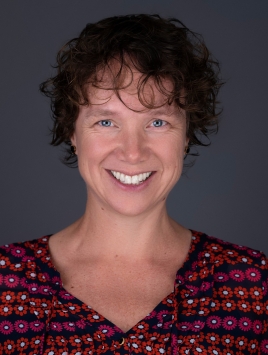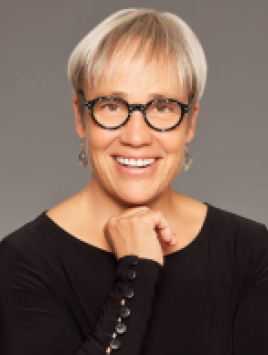
Board & Staff

Board of Directors
President

President
Matthew Mills, MCIP, APALA, CSLA is a landscape architect and planner based in beautiful St. John’s, Newfoundland and Labrador. Upon graduating from the University of Guelph’s MLA program, Matthew worked briefly in Ottawa before, as many Newfoundlanders do, deciding to return home. Since then, he and his partner have built an award-winning firm, Mills & Wright Landscape Architecture, which specializes in working with municipal and private sector clients on a range of project scales including tourism plans, recreation amenities, trail systems, and municipal parks.
Matthew has been an advocate for the profession in Atlantic Canada through his involvement with APALA, having recently served a 7-year term on the Board which included two years as President. During this time, Matthew established an ongoing partnership with the Newfoundland and Labrador Architects Association on a successful Lecture Series, which has welcomed Landscape Architects from all over North America and has been instrumental in increasing awareness of the profession. He also played a key role in advancing several important APALA Board initiatives including introducing the LARE path to membership, forming the Communications Committee, and launching the APALA Awards of Excellence program.
Matthew is a firm believer that the collaborative nature, diverse skillset and expertise, commitment to the environment, and remarkable innovation of Canadian landscape architects will lead the way in addressing the complex challenges being faced by society today.
President-Elect

President-Elect
Michael is an award-winning landscape architect, multi-disciplinary practitioner and AECOM’s national Sector Lead for Social Infrastructure. In all aspects of his work, Michael leverages his multi-disciplinary education and 18 years of professional practice to deliver innovative solutions to complex problems in the fields of landscape architecture, urban development, community planning, green infrastructure, placemaking, and multimodal transportation.
Michael’s diverse portfolio of successful projects and leadership of teams in both private practice and the public sector is reflective of his commitment to creative design, innovation, technical excellence, and a passion for mentoring emerging professionals. At AECOM, Michael combines his vast portfolio of public realm planning + design projects with his skills in collaborating with multiple disciplines to tackle projects of increasing scale, complexity and profile.
Michael is also passionate about promoting and advancing the profession of landscape architecture, having served as Past-President of AALA, a Board Director of CSLA, and is the current President-Elect with CSLA.
Past President

Past President
Catherine is a Registered Landscape Architect and a Registered Professional Planner. In a career spanning more than four decades, she has been at the forefront of her disciplines, building relationships, integrating GIS applications, and preparing plans and designs that have enhanced communities and the environment.
Her current work is with Urban Systems, an interdisciplinary firm of 600 with 15 offices in Western Canada. She previously spent 28 years as principal of Catherine Berris Associates Inc. (CBA), an award-winning boutique firm in Vancouver. Her project experience spans community and site planning for Indigenous communities, municipalities, and land developments; community engagement; parks, recreation, culture, and trails planning and design; nature-based design solutions; urban forest strategies; coastal planning; and cemetery planning and design.
Catherine is also engaged in community service and mentoring. She is currently on the Professional Governance Act Working Group for the BCSLA, supporting BC landscape architects in becoming a regulated profession. She provides leadership and mentoring to Urban Systems’ 24-person landscape architecture practice. In 1999, she was honored by being appointed a Fellow of the Canadian Society of Landscape Architects.
Chair, Finance and Risk Management Committee

Chair, Finance and Risk Management Committee
Jane Welsh, BLA University of Guelph 1984 and MSC in Planning University of Toronto 2000 has been Project Manager of the Environmental Planning unit of Toronto City Planning since 2005. Her education and experience as a Landscape Architect has been the foundation for her work in developing new innovative solutions to address environment/sustainability/ resilience issues and change the way we build and develop in Canada's largest city.
This work has included the award winning Toronto Green Standard and Green Roof Bylaw; the Bird Friendly Guidelines; the Biodiversity booklet series and the Enduring Wilderness: Toronto Natural Parklands book. She has also been responsible for developing the first Ravine Protection Bylaw for the amalgamated city, and the first Ravine Strategy and the first Biodiversity Strategy.
She previously developed Waterfront Plans for Metro Toronto, City of Mississauga and Halton Region Conservation Authority and worked as a landscape architect in the private sector, and has always made time to mentor staff and students.
Jane has volunteered with the OALA for many years: as founding member of the Honours Awards and Protocol Committee (since 1988): as Co-Chair of the CSLA conference in 1991; and on OALA Council from 2014 to 2023 including the role of President. She is currently co-chair of the CSLA Committee on Climate and Biodiversity and IFLA Special Envoy to the International Association of Horticultural Producers (AIPH).
Director

Director
Since joining Niagara Parks in 2016 as Senior Director and member of the executive team Steve has been responsible for planning, environmental stewardship, culture interpretation across all Niagara Parks properties and historic sites. Steve oversees the development policy and planning strategy to delivery on Niagara Parks mandate of environmental and cultural stewardship for the Niagara River corridor. Some of the more recent initiatives include the establishment of coastal wetland sites along the upper Niagara River, a new public realm plan at the brink of the falls and the Heritage adaptive reuse of the 1905 Hydroelectric power station.
Prior to Niagara Parks Steve was with City of Hamilton responsible for Park Planning and implementation of open space capital projects and managing Forestry and Horticulture division. Steve has worked on a wide range of projects including master plans, Heritage restoration sites, coastal wetland rehabilitation, waterfront development, transportation, storm water management systems and visual impact assessments and provided expert witness testimony at the Environmental Review Tribunal. Steve is a registered Landscape Architect with the Ontario Association of Landscape Architects since 2000 and currently serving on its governing council as the association’s past president. Steve graduated with a Master of Landscape Architecture from the University of Guelph and with a Bachelor of Earth Science from the University of Waterloo. In 2016 Steve received the OALA Public Practice award.
Director

Director
Teri Cantin brings over 20 years of landscape architectural and project management experience to her role of Manager, Landscape Architecture + Urban Design, BC at WSP Canada. After completing her Bachelor of Arts at the University of British Columbia with a Geography major, Teri completed her Master of Landscape Architecture at the Edinburgh College of Art in Scotland. She is a Registered Landscape Architect in British Columbia and has her CPTED Professional Designation.
Since joining WSP Teri has worked collaboratively with the engineering team on a variety of infrastructure projects throughout the BC Interior adding value to the public realm related to the upgraded infrastructure. She has also had a major role in post secondary work and has an extensive background in a variety of institutional projects including day cares, hospitals, schools and commercial campus planning. Additionally, Teri has also worked on a variety of housing projects including social and supportive housing, private development and design guidelines for single family development.
Prior to joining the WSP team, Teri worked on a variety of projects including day care facilities, parks, campus planning, and multi-family residential in her time as project landscape architect in offices in Canada and the US. Teri’s time in the theme park and attractions industry included the concept and detailed design of splash pads to full, multi-hectare waterpark planning as well as indoor and outdoor family entertainment centres complete with theming and back of house facilities.
Director

Director
Born and raised in Atlantic Canada, Cameron was introduced to the landscape industry at an early age by way of the landscape maintenance sector. After completing a university degree in New Brunswick, he learned of the profession of landscape architecture from a friend and decided to pursue a BLA at the University of Guelph, graduating in 2005. He currently resides in Canada's far north in the City of Iqaluit. There,he has held progressive roles in municipal and territorial government. Cameron has been a NuALA board member and CSLA board director since 2011. He enjoys spending his time with family, travelling and being in the great outdoors.
Director

Director
Ms. Margaret Ferguson obtained a diploma in Landscape Architectural Technology from Ryerson in 1980 and a diploma in Restoration of Natural Systems from the University of Victoria in 2011. She was accepted as a member of the NWTALA and the CSLA in 1991 and the Canadian Association of Heritage Professionals (CAHP) in 1994.
Margaret was a founding member of the NWTALA and has served continuously on the board since its inception. She has taken an active role in many areas of the association including her participation in the drafting of key documents and promotion. She repesented the NWTALA on the CSLA Board of Directors, including representation on the President’s Council from 2012-present. Margaret was a board member and the CAHP National Membership Chair from 2006-2009.
In 1984, Margaret moved to Frobisher Bay (now Iqaluit) and became the first resident landscape architect in the eastern arctic. She travelled extensively throughout the region as a project officer with the Government of the NWT focusing on advancing responsible site development practices while managing construction projects.
In 1991, she moved to Yellowknife where she was engaged by the territorial government and then opened a consultancy that specialized in park master planning, interpretive and heritage resource design, and, community land use planning studies. Since 2004, Margaret has been a partner with Gaea Consulting Ltd. while continuing studies in ecological and restoration principles and techniques.
Director

Director
Tracey Hesse holds a bachelor’s degree in Fine Arts (1994) from Concordia University and a master’s degree in Design (Landscape Option) from the University of Montreal (2000). She acquired practical experience in both design and execution early in her career, working as a landscape contractor in her own company for eight years. Today, she has over 20 years experience in landscape architecture in the public and private sectors. She has worked for EDAW, an international landscaping firm based in the United-States, in Atlanta, GA and several larger landscape architecture firms in Montreal. From 2015 to 2022, she was an associate at HETA (Hodgins & Associates), a firm specializing in residential, commercial, and institutional projects.
In 2009 and 2010, she worked as an administrative assistant for the AAPQ. This opportunity allowed her to familiarize herself with the daily operations of the Association. Subsequently, she was part of the Admissions Committee until 2019. In addition to serving on her provincial board, Tracey is involved in other activities within the association, including the congress planning committee.
Tracey is known for her excellent drawing skills and landscape designs. She is proficient in plant selection for residential and urban projects. In 2015, she was awarded 1st Ex-aequo Prize and the Prix Coup de cœur in the category of small garden spaces from the APPQ (Association des paysagistes professionnels du Québec) for her collaboration for Le filigree. More recently, in 2022, her collaboration with Cohlmeyer Architecture for the Montauk Sofa flagship store in Montreal received a Platinum certification in the 15th edition of Les Grands Prix du Design as well as the Milan Havlin Award from the APPQ.
One of Tracey’s first jobs was working for a tropical plant wholesaler. This experience was put to good use, as in 2023, her collaboration with Affleck de la Riva architects for the restauration of the Westmount Conservatory was awarded a Platinum Certification as well as a Gold Certification for heritage enhancement in the 16th edition of Les Grands Prix du Design.
Tracey is currently working at KAP, a firm specializing in public and municipal projects based in Laval, Québec.
Director

Director
Andrea is a senior landscape architect, passionate about all-things design and committed to elevating the quality of our built environment, promoting pride of place, and improving community wellbeing.
She has nearly two decades of experience in private consulting practice, collaborating with diverse and inspiring teams on transformative projects – large and small, covering a wide range of landscape architecture and urban design project settings, typologies, and scales. From sidewalk patios to municipal plazas through to campus master plans, transportation corridors, community planning and resilience infrastructure, Andrea is a strong advocate for design excellence - from concept through to construction. In all her work, she promotes solutions that are site-sensitive, program-responsive, that build community and ecological resilience, and that ultimately bring long-term value to all. She is particularly passionate about collaborating on the big thinking that drives thoughtful and innovative design.
Andrea is also an active member of the professional design community, a SITES Accredited Professional and a LEED Green Associate, and enjoys being inspired and challenged by next generation designers through her involvement and support of post-secondary students and emerging professionals.
Staff
Executive Director

Executive Director
executive-director@csla-aapc.ca
Michelle Legault is the Executive Director of both the Canadian Society of Landscape Architects (CSLA) and the Landscape Architecture Canada Foundation (LACF).
Following her graduation from Laurentian University in 1996 with a Master’s degree in history, Ms. Legault began her career administering a scholarly publishing program and yearly awards program at the Humanities and Social Sciences Federation of Canada’s Aid to Scholarly Publications Programme. In 1999, she accepted a position as an Information Officer with the Canada Council for the Arts. In 2003, she became Head of the Canada Council for the Arts’ Arts Services Unit and, from 2007 to 2012, was the Executive Secretary of the Public Lending Right Commission, where she managed the $10M national Public Lending Right Programme. Since 2012, she has been at the helm of the Canadian Society of Landscape Architects. Ms. Legault brings key leadership strengths to the role of the CSLA’s Executive Director in the areas of communication, governance, project management, volunteer and member support and business and financial management. She is responsible for increasing the awareness and promoting CSLA’s goals and objectives, celebrating its members’ achievements, supporting education and research, developing policy, ensuring strong Board governance and enhancing the organization’s profile.
Officer, Awards, Honors, and Events

Officer, Awards, Honors, and Events
Katherine Velluso is the newly-appointed CSLA Officer, Awards and Honors where she will be overseeing the CSLA's awards programs and the annual congress.
Early in her teens, Katherine took an interest in photography, visual design projects, and music. She developed these passions into small freelance businesses throughout her high school years, where she taught piano from home, designed posters and brochures for local businesses, and took professional headshot photos.
Katherine has worked in the communications field, beginning as a co-op student while she studied at Carleton University. Her co-op opportunities allowed her to gain experience with a wide variety of communications methods such as social media, video editing, internal communications, marketing, and graphic design. Some of the organizations she has worked for include: Canada Revenue Agency, International Development Research Centre, and Public Safety Canada.
In June of 2019, Katherine graduated from Carleton University with a Bachelor of Communications & Media Studies, Women’s and Gender Studies Combined Honours. She was awarded the Bell Centennial Scholarship for academic excellence in the Women's and Gender Studies program in 2016. She was also awarded the Senate Medal for Outstanding Academic Achievement upon graduation.
Manager, Advocacy and Strategic Affairs

Manager, Advocacy and Strategic Affairs
Hope Parnham (APALA, CSLA, RPP, MLA, BEnvD, BSc) is a landscape architect and planner from Charlottetown, PEI. Hope is no stranger to the CSLA. She has been involved with the Association for over 15 years in various roles. As a student, she assisted with the administration of the Awards of Excellence program (2007-2010), was subsequently a founding member of the CSLA Committee on Climate Adaptation (2015-present), was the APALA representative to the Board of Directors (2017-19), and most recently served on the Executive Council (2019-2022), serving as President in 2020-21. Hope has also contributed as a juror to the LACF Annual Grants Program (2017-2022) and for the Governor General’s Award in 2021. In PEI and Atlantic Canada, Hope’s career has included work in private practice as well as municipal and provincial government roles, with a focus on climate change adaptation, education and outreach. Her work in research, policy development, and advocacy for improved standards in planning and design practice has led to numerous keynote and international speaking engagements, as well as participation in various Federal government and national-level NGO committees and working groups. While she has not had a traditional LA practice in PEI, she recognizes the value of landscape architecture and believes that landscape architects have the opportunity to be changemakers in the 21st century.
Coordinator, Communications and Special Projects

Coordinator, Communications and Special Projects
Prior to joining the team at CSLA, Rebecca spent three years leading fundraising communications for Dalhousie University’s annual giving campaign, generating financial support for scholarships, bursaries, student food security and more. In that time she enjoyed working closely with stakeholders and student volunteers to share the impact of donor support, but she is eager to take on new challenges. Her other varied communications experience includes a stint with a content marketing agency, freelancing as a digital marketing specialist and copyeditor, and work in the not-for-profit and B2B sectors. Rebecca holds a postgraduate degree in publishing from Edinburgh Napier University in Scotland.


